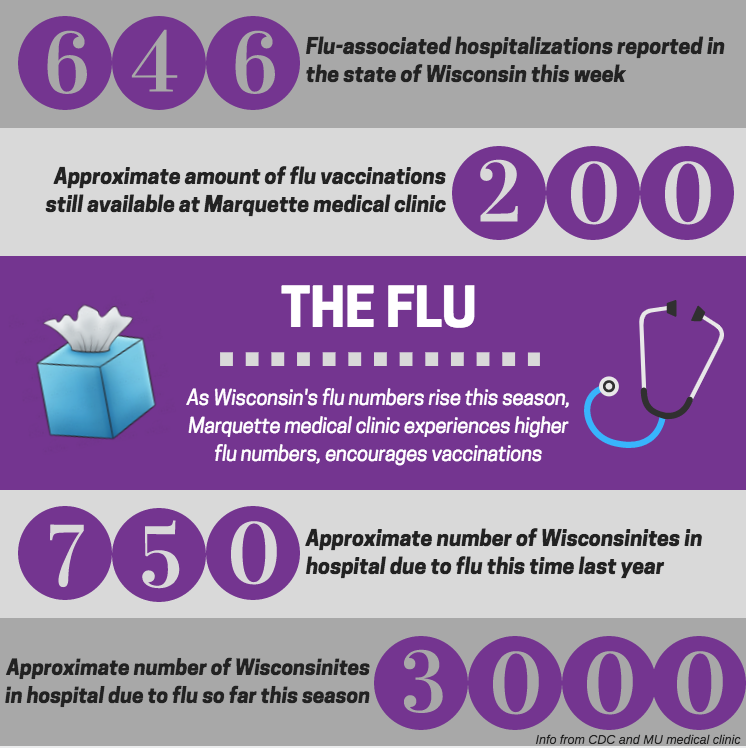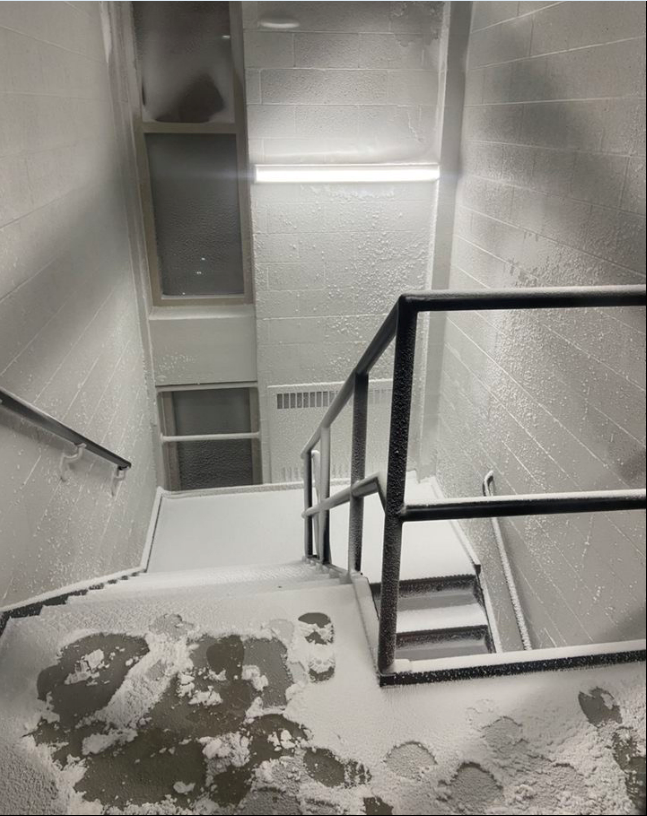 The norovirus has made its annual return to Wisconsin and Marquette’s campus. For those who contract the virus, an awful two days is on the way.
The norovirus has made its annual return to Wisconsin and Marquette’s campus. For those who contract the virus, an awful two days is on the way.
Paul Biedrzycki, the director of disease control and environmental health at the City of Milwaukee Health Department, said the norovirus is highly contagious and spreads through contact with infected persons and contaminated surfaces. Biedrzycki said the symptoms include nausea, diarrhea and cramping.
Connor Clancy, a freshman in the College of Business Administration, said he spent Sunday night in a bathroom stall in McCormick Hall because of the norovirus. Monday he missed all his classes to sleep in his room and avoid spreading the infection.
“The norovirus is a horrible thing, and other students should try to stay healthy and avoid getting it,” Clancy said.
Clancy said he went to Student Health Service Monday and received an IV with two liters of fluid to avoid dehydration. He had to spend the rest of the day in his room sleeping.
Aron Hall, an epidemiologist with the National Center for Immunization and Respiratory Diseases, said the norovirus is responsible for an estimated 21 million illnesses, 70,000 hospitalizations and 800 deaths in the U.S. every year. He said it is also the leading cause of food-borne disease in the U.S.
“Noroviruses are highly contagious,” Hall said. “People are most contagious when they are sick and during the first three days after they recover. Infected people can shed billions of norovirus particles, yet it takes as few as 18 norovirus particles to infect other people.”
Hall said the people at greatest risk of infection are those who are in close contact with a contaminated person.
Biedrzycki said that to stop it from spreading, good hygiene practices are a must.
“We see cases of norovirus each year, only many people call it by a different name: the stomach flu,” Biedrzycki said. “Norovirus is not required to be reported to local public health authorities unless suspected as part of an outbreak.”
Biedrzycki said that based on reports he receives from the community, the noroviruses are fairly widespread in many communities throughout Wisconsin.
“Noroviruses change strains every few years,” Biedrzycki said. “A new strain (GII 4 Sydney) was isolated this year in the United States, which has been linked to many outbreaks across the country since this past summer. Noroviruses can be spread through contaminated food and water through the year, and therefore there really is no ‘norovirus season’ to speak of as there is with the flu.”
Hall agreed with Biedrzycki that good hygiene practices are the only way to prevent the virus from spreading.
“The best ways to help reduce the risk of getting infected with norovirus are washing hands often with soap and water, avoid preparing food or caring for others when you are sick, disinfecting contaminated surfaces, washing fruits and vegetables before preparing and eating them and cooking shellfish thoroughly before eating,” Hall said.
Hall said most outbreaks of the norovirus occur from November to April, with the activity peaking in January.
“A new norovirus strain emerged late last year, although it is currently too soon to tell if it will lead to more outbreaks this winter,” Hall said.











Jess Nessman Feit • Apr 3, 2013 at 2:06 pm
🙂 Just a little tip; norovirus affects the GI tract, therefore, none of the medications or remedies shown in the picture above (Dayquil,etc.) would be appropriate to alleviate symptoms!